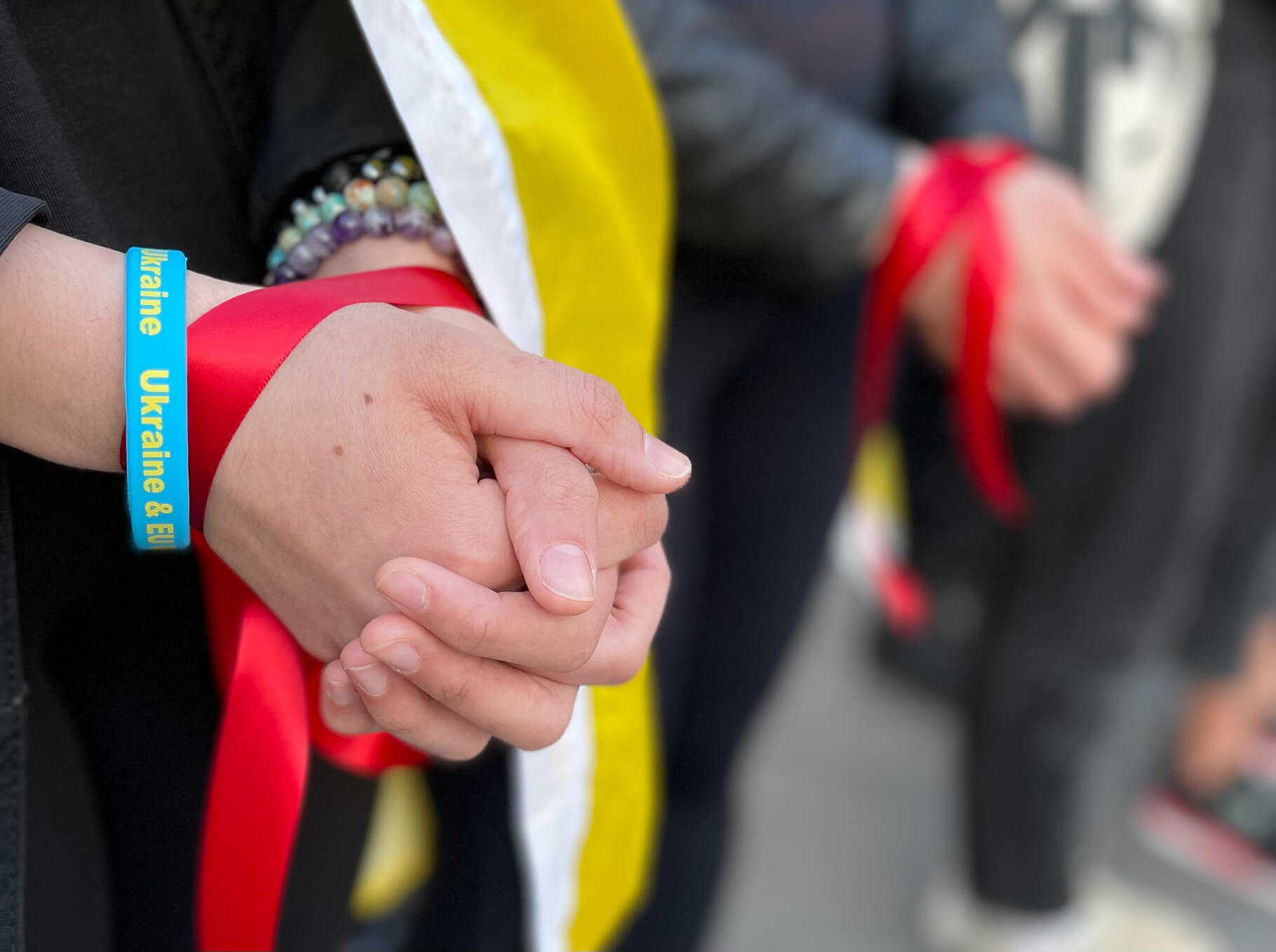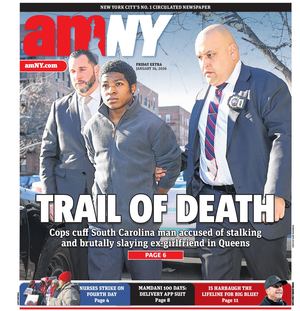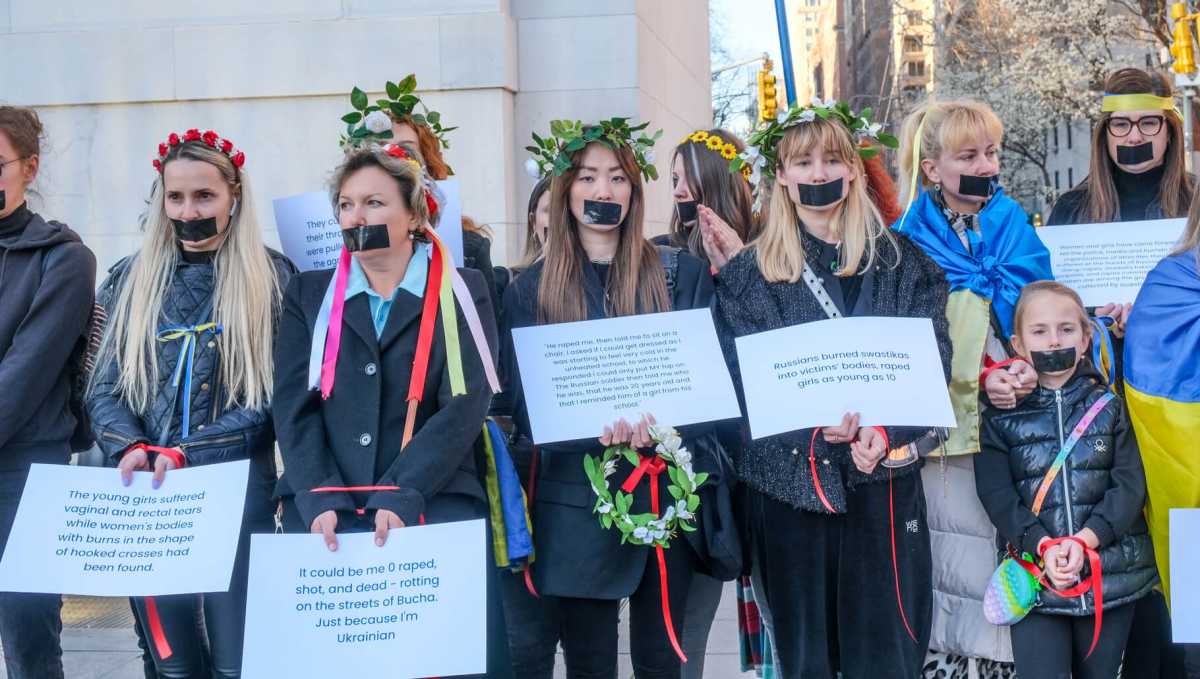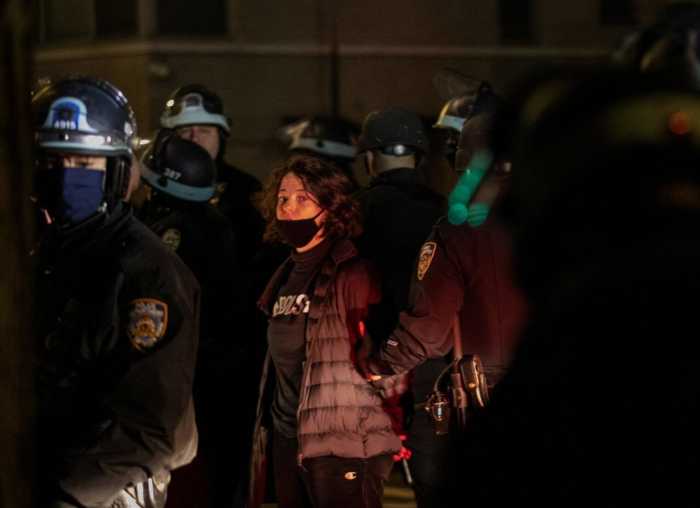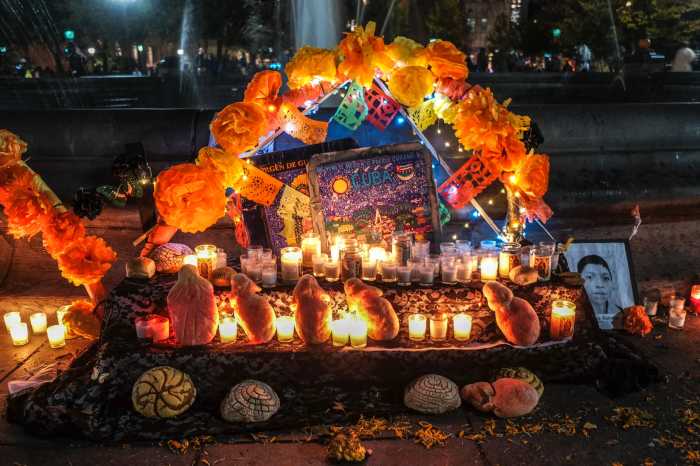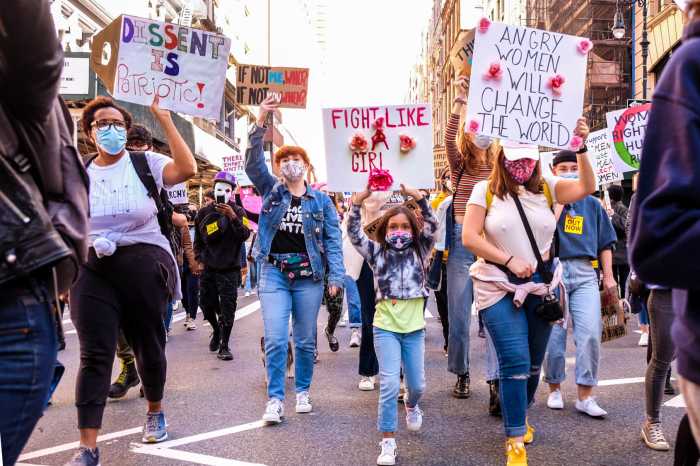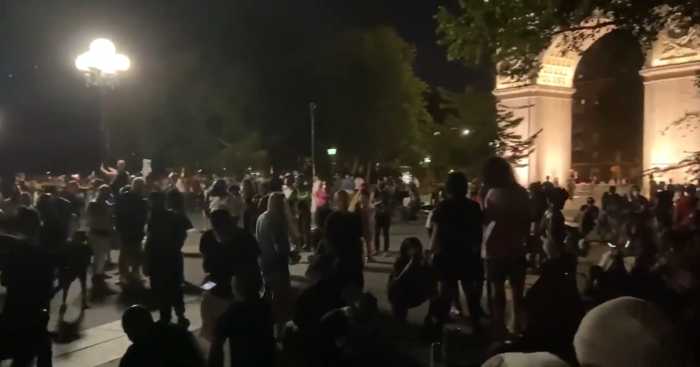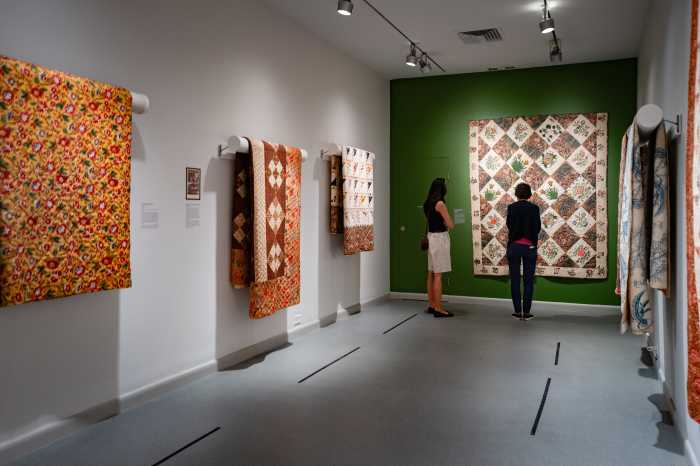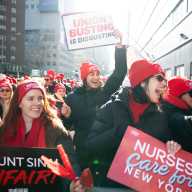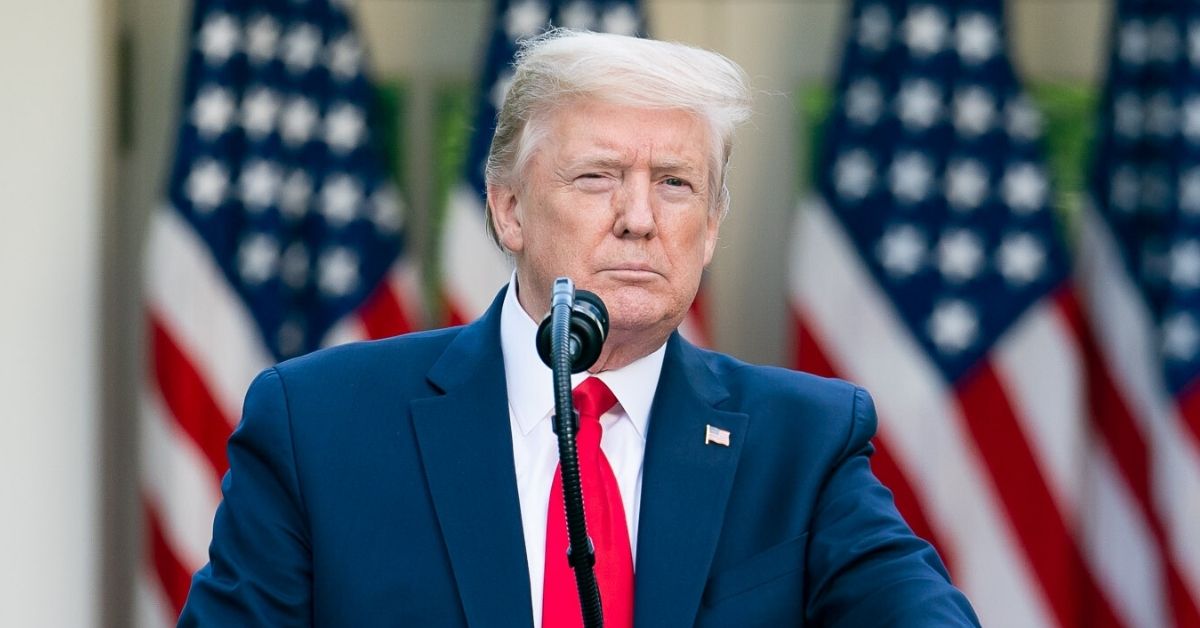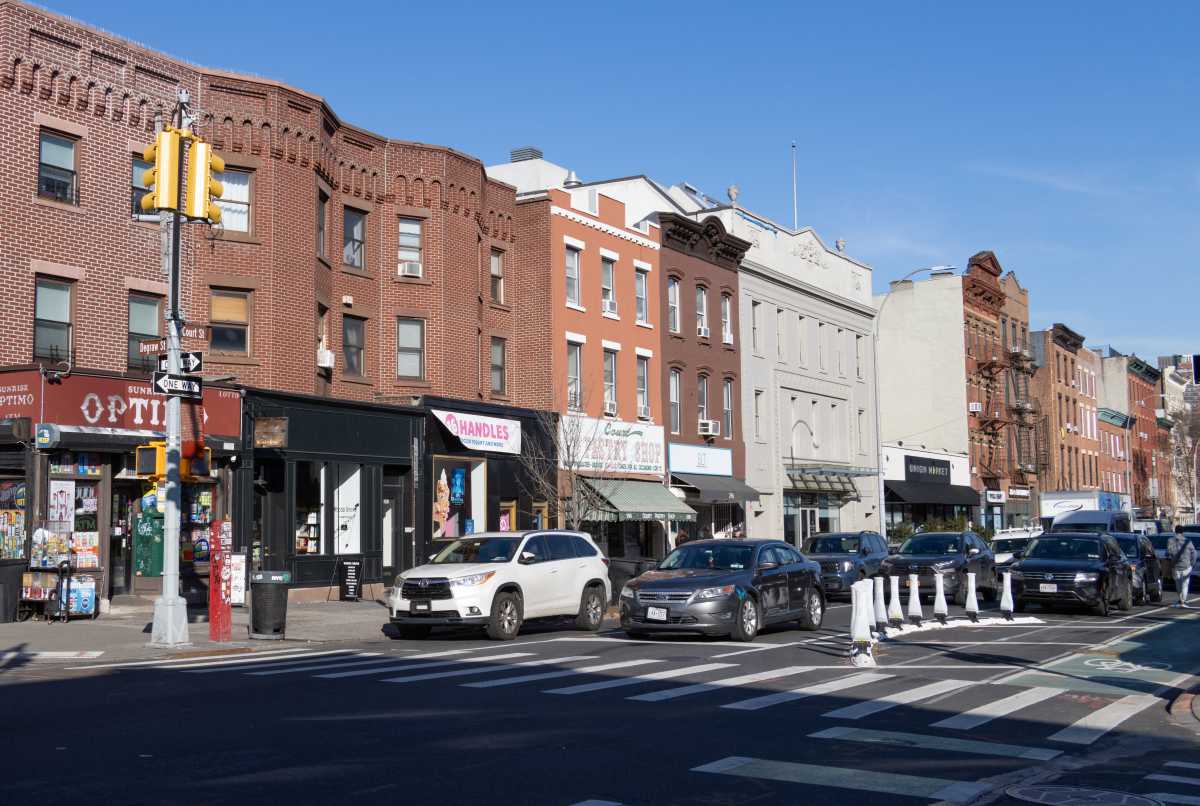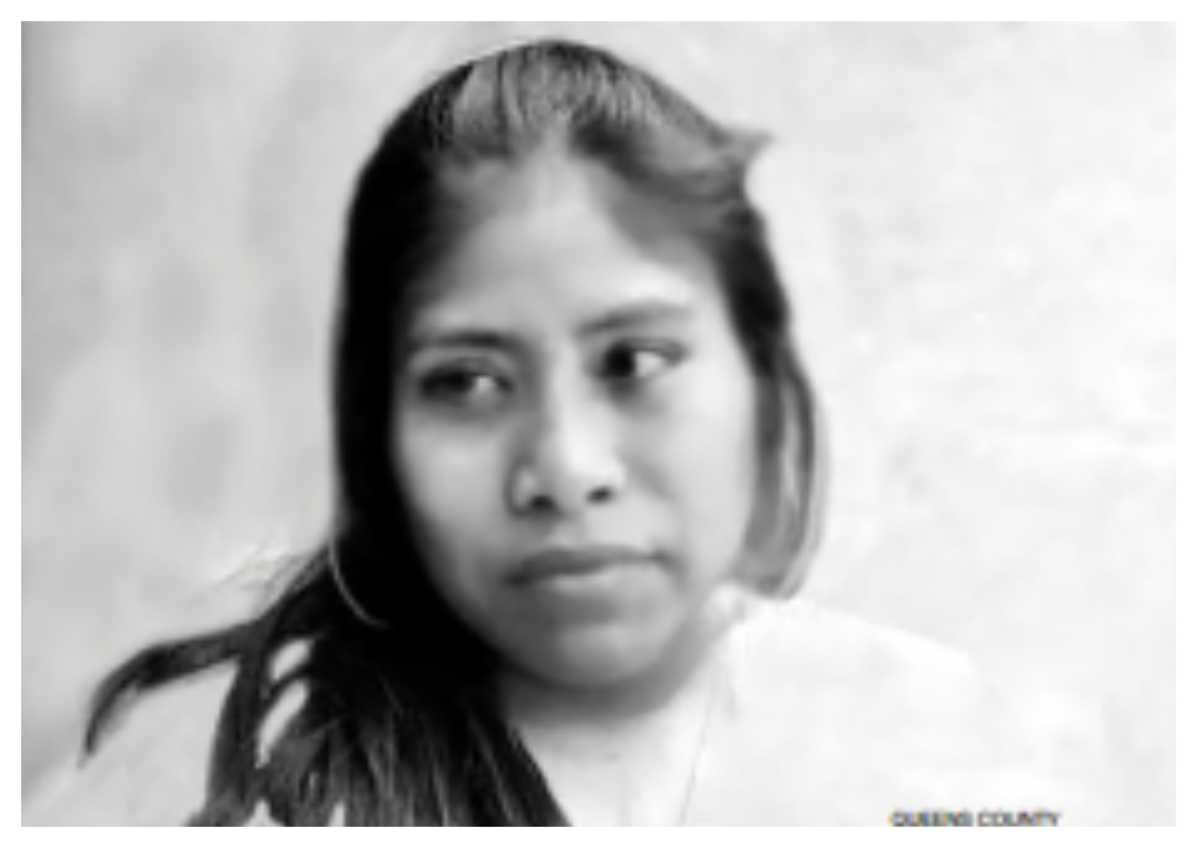Russia’s unprovoked invasion of Ukraine began on Feb. 24. As of April 14, that’s 49 days of a war with seemingly no end in sight and attempts at negotiations fruitless.
Bombardment of civilian targets and the destruction of cities and towns has led to over four and a half million people leaving Ukraine, crossing borders into neighboring countries. Thousands of people are internally displaced.
Among the brutalities and mounting numbers of authenticated executions are also the documented numbers of rapes perpetrated by the Russian troops.
Human Rights Watch is among the organizations documenting rape and sexual violence during this war. Increasingly, these sexually violent crimes committed by Russian soldiers are being reported in major print, radio and TV outlets.
Early Friday evening, over 100 Ukrainian women gathered in Washington Square Park in a powerful silent action. With some wearing traditional flower crowns and children among them, they called attention to the rape and sexual violence against Ukrainian women by the Russian soldiers.
Their hands bound with red ribbons, their mouths covered with black tape indicated how this violence against women has been silenced.
Women held signs that accounted the situation. One read: Ukrainian girls cut their hair to be less attractive and avoid getting raped by Russian soldiers.
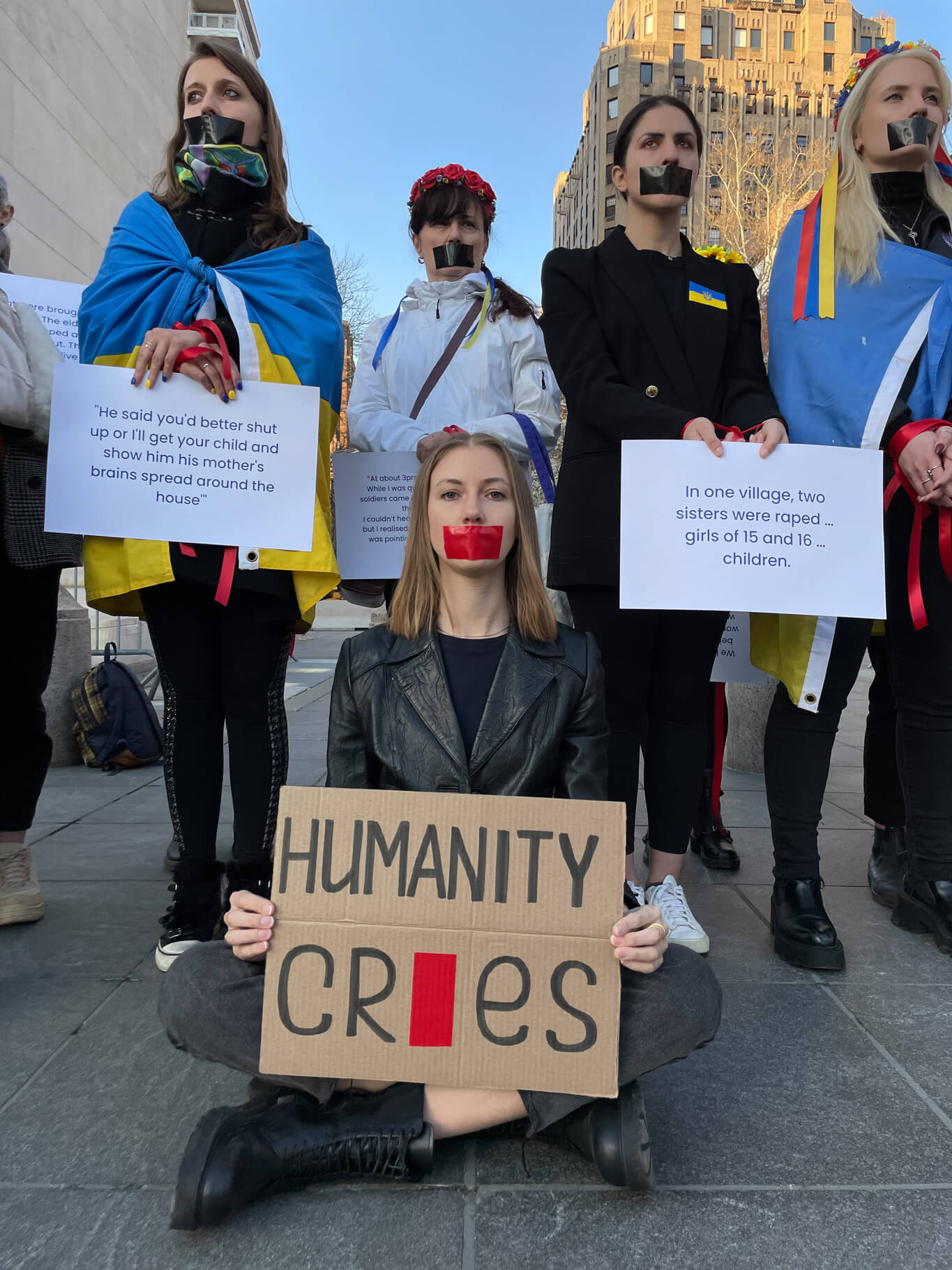
Another read: Gang rapes, assaults taking place at gunpoint, and rapes committed n front of children are among testimonies collected by investigators.
Some placards documented the horror of these sexual crimes: “All the time they had the gun by my head and taunted me, saying, ‘How do you think she sucks it? Shall we kill her or keep her alive?’”
Ukrainian activist Arthur Zgurov, commented on the importance of drawing attention to this aspect of the war, “Women are the least protected part of society. When men come with weapons it’s hard to protect, especially women and children. Unfortunately, the picture from Bucha gave us, the world, this perspective of what’s going on—going on all over the occupied territories.” (Last week, documented evidence there of mass graves, executions and rape testimonies.)
“We yet don’t know what’s going on in Mariupol— you know they brought the mobile crematoriums there to destroy the evidence of their horrible crime. Rape, unfortunately is not only a Ukrainian issue, it’s a global issue and we have to do something about this.” He added, “Women give birth to children and are responsible for the next generation; they have to have respect.”
Anna Liashenko 30, from Odessa, having arrived in the U.S. eight years ago seeking asylum, added additional background. She reported how hundreds (who have been raped) have been able to get out of the country. “The little girls and women going through rapes—they’re coming to Poland. In Poland, it’s very strict, it’s almost impossible to get an abortion. After everything they’ve been through they’re facing other difficulties after being raped.”
Liashenko adds how children witnessing the rape and murder of their parents are traumatized, “It’s terrible and it’s heartbreaking.”
“I am a very peaceful person and never thought to hate somebody, but now that has changed.”
